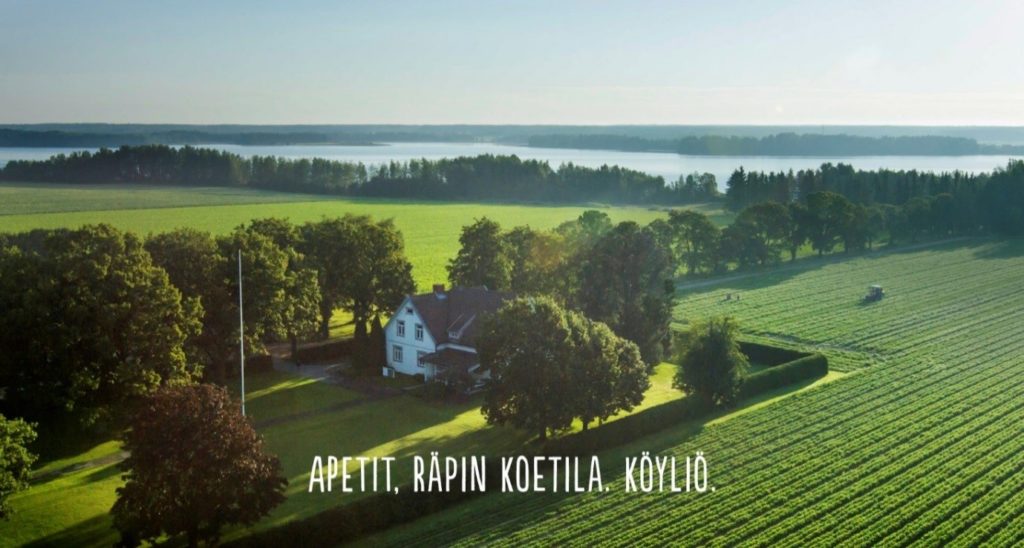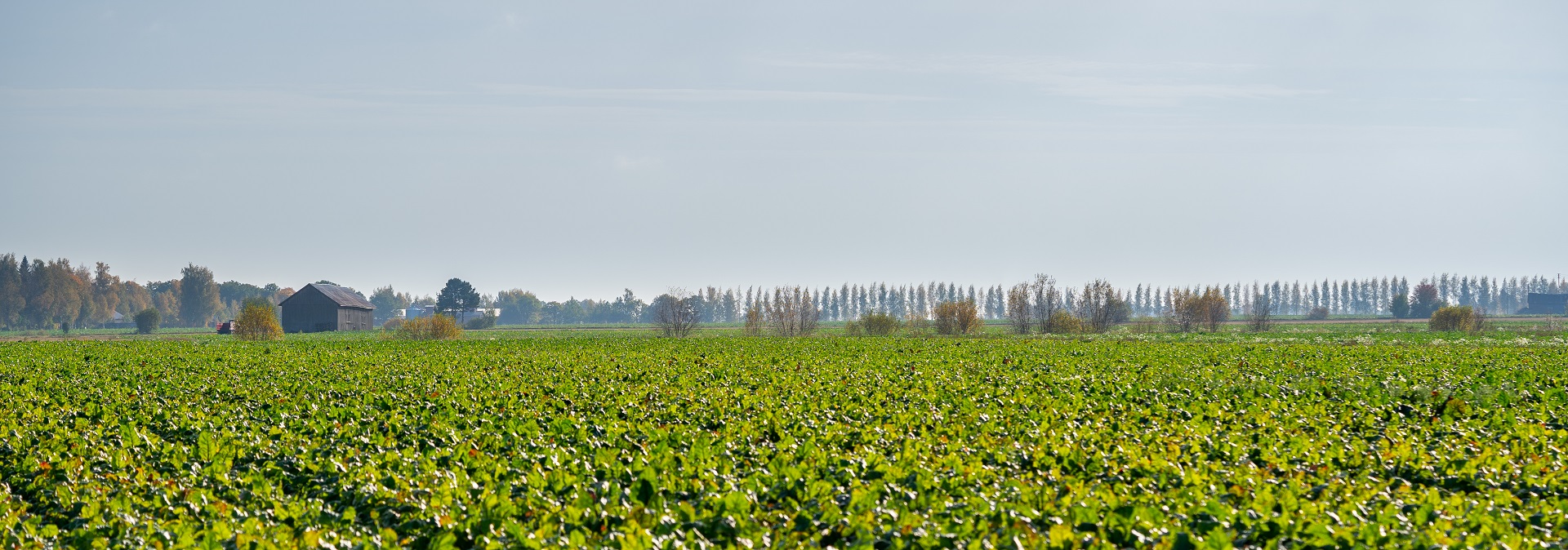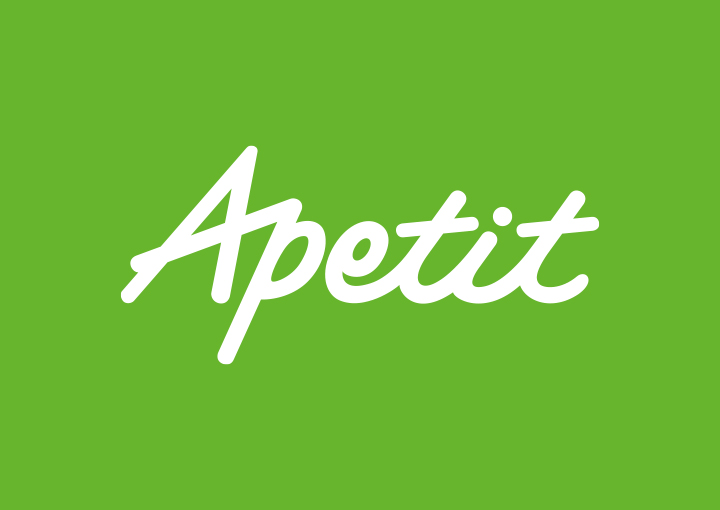Räpi experimental farm – a pioneer in cultivation expertise in satakunta
The operations began in 1954 as an experimental farm for Länsi-Suomen Sokeritehdas Oy and they have continued uninterrupted to the present day, with Räpi serving as an experimental farm for Lännen Tehtaat and Apetit. Today, as one of only a few company-owned experimental farms in Finland, it contributes to the development of agricultural expertise in Satakunta.
Throughout its history, the Räpi experimental farm has served as a channel through which new plant varieties and cultivation methods enter the Satakunta region. The cultivation methods, plant varieties and focus areas of research have changed over the years. The experimental activities began with experiments related to sugar beet varieties and cultivation methods. They were later expanded to cover many other outdoor crops when Lännen Tehtaat began the contract growing and production of a wide range of frozen vegetables in Säkylä.
The research done at Räpi is aimed at anticipating future trends in outdoor crop cultivation. For example, all the plant varieties and cultivation methods selected for use in Apetit’s contract growing are tested at Räpi before their broader implementation. This season, the farm has tested plant varieties, fertiliser use and cultivation methods for peas, swede, parsnip, carrot, spinach, celeriac, sugar beet and other crops.
EXPERIMENTATION PROMOTES VEGETABLE QUALITY AND SUSTAINABLE GROWING
During the past decade, the research and experimentation at Räpi has been particularly focused on developing a cultivation method that supports a sustainable and environmentally friendly farming ecosystem. The most recently-developed cultivation methods are based on using plant protection measures only when necessary and only to a limited extent. Biological and mechanical solutions are prioritised.
Pest control solutions can include, for example, nets that cover crops, and information on pest life cycles and their natural enemies. Similarly, biodegradable covering materials and mechanical uprooting can be used to control weeds.

THE DELICIOUS TASTE OF APETIT FROZEN VEGETABLES COMES FROM EXPERT FARMING AND SUPERIOR VARIETIES
The Räpi experimental farm is constantly testing new varieties to find those with the best flavour, texture, nutritional quality and suitability for freezing for use in Apetit products. Apetit’s product development also guides choices related to plant varieties and contract growing. The popularity of Apetit Kotimainen, a product range focused on vegetables grown in Finland, supports introduction of new varieties to contract growing in Finland.
A HUB FOR DEVELOPING FINNISH INTEGRATED PRODUCTION EXPERTISE
The results of the research at Räpi experimental farm are used in the development of the Apetit responsible farming method to which all of Apetit’s contract growers are committed. The responsible farming method is used to manage plant-specific cultivation instructions, quality and product safety, and other factors. For example, plant protection measures are only used when necessary and with due consideration. The Räpi experimental farm plays a key role in Apetit’s Responsible Farming method.
The Räpi farm has contributed significantly to development of the Finnish IP (Integrated Production) method. In 2011–2013, it participated in the Varjellen Viljelty project by updating new plant-specific cultivation instructions in response to consumer expectations and regulatory standards.
The Räpi experimental farm cooperates closely with the Pyhäjärvi Institute, Natural Resources Institute Finland, Åbo Akademi University, the Sugar Beet Research Centre of Finland and growers in the Satakunta region. The new knowledge and expertise developed at Räpi is transferred to Apetit’s approximately 100 contract growers in many ways. Those include the Experimental Farm Days event, which promotes the success of agriculture as a livelihood throughout Satakunta.
Experimental activities in Räpi:
- Pea
- Broad bean
- Carrot
- Swede
- Spinach
- Cauliflower
- Potato
- Sugar beet for the Sugar Beet Research Centre of Finland
ROOTS ON LALLI MANOR LANDS
The written history of the Räpi experimental farm began in 1156, when it was part of Lalli Manor. In 1812, the Kepola country manor was separated from Lalli Manor. More than a century later, in 1917, the Kepola country manor was split into three parts and divided between the owner’s sons. The youngest son, Albert, stayed on as landlord of one of the three parts, which was subsequently named Räpi.
After the war, the family’s youngest son, Jaakko Rauanheimo, became the new landlord of the Räpi estate. He held this position until 1954, when he sold the farm to Länsi-Suomen Sokeritehdas Oy, which had been established in Säkylä in the early 1950s.
Related articles

Good result for Apetit in CDP’s international climate assessment
Apetit Plc, press release, 7 December 2021 at 4:00 p.m. Apetit Group reached a B score for good environmental management in the evaluation of the global environmental organization CDP's Climate Change program. The Management score was given to Apetit after the company took part in a minimum version of the program. This was the first time Apetit participated in the CDP survey. “Sustainable food choices are at the core of Apetit’s goal-oriented climate work. For example, we are committed to cultivation development and to promotion of carbon farming in primary production, to focusing particularly on domestic vegetables and local fish, and to reduction of our direct CO2 emissions by 75 by 2025. We are glad to achieve the B score at disclosing the CDP at the first time”, says Sanna Väisänen, Director of Corporate Communications and Sustainability at Apetit. CDP's annual Climate Change assessment analyzes and collects company-specific information on climate change mitigation, identification of climate risks and opportunities, and emissions. CDP Score Report - Climate Change 2021 (pdf) For further information, please contact: Sanna Väisänen, Director, Corporate Communications and Sustainability, tel. +358 10 402 4041 Apetit is a food industry company firmly rooted in Finnish primary production. Our operations are based on a unique and sustainable value chain: we create well-being with vegetables by offering tasty food solutions that make daily life easier. We also produce high-quality vegetable oils and rapeseed expellers for feedstuff, and trade grain on the international markets. Apetit Plc’s shares are listed on Nasdaq Helsinki. In 2020, the Group’s net sales were EUR 293 million.

Apetit expands its Baltic Sea Commitment from fields to waterways
Apetit Plc, press release 3 December 2021 at 09:00 a.m.Apetit is expanding its Baltic Sea Commitment made to the Baltic Sea Action Group in 2019. The commitment, which is currently being updated, will expand from fields to waterways, thus also covering the development and expansion of the use of domestic local fish in the Apetit product range. “In practice, this means that Apetit’s product development will pay special attention to fish choices that promote the maintenance of the ecological balance of waterways and the reduction of nutrient load in waterways. At the same time, Apetit makes it possible for consumers to choose from a wide range of sustainable fish,” says Sanna Väisänen, Director of Corporate Communications and Sustainability at Apetit. The use of local fish benefits the waterways, as eutrophication is one of the main sources of harm to the well-being of our waterways. Eutrophication refers to the overgrowth of algae caused by excessive nutrients, such as nitrogen and phosphorus, which leads to, for example, turbidity, oxygen deficiency and a decrease in the diversity of living organisms. “We have invested heavily in the productisation of local fish, and therefore it was a natural choice for us to extend the Baltic Sea Commitment directly to waterways and products based on local fish. The positive effects will be reflected in both the Baltic Sea and inland waters,” Väisänen says. Apetit’s product family of local fish was born out of the desire to utilise the fish caught in Lake Pyhäjärvi in Säkylä as part of fish stock management. Today, the product family includes freshwater fish fingers and fish cakes, Särkisen fish balls and Baltic Sea fish fingers made from herring caught in the Baltic Sea, which were launched this autumn. “We are pleased that Apetit has selected local fish caught in the Baltic Sea as a raw material for familiar everyday products. We hope that local fish will permanently gain the appreciation they deserve on dinner tables,” says Michaela Ramm-Schmidt, Managing Director of BSAG. Focus on improving soil fertility Apetit’s commitment has previously focused on producing information that can be used in the contract farming of field vegetables, particularly when it comes to soil fertility improvement and carbon sequestration. These efforts are currently being put into practice in the ongoing projects at Apetit’s Räpi experimental farm. “The goals of the research projects include producing information and practices for improving soil fertility and water resource management as well as developing carbon farming, particularly in the cultivation of field vegetables,” says Väisänen. When training its contract growers, Apetit’s utilises the e-college for regenerative farming, which has been produced by BSAG with the help of a wide range of partners. “We are eagerly waiting for the results from the Räpi experimental farm, as scientific data on the regenerative methods of vegetable cultivation is still quite new and therefore very interesting,” says Ramm-Schmidt. Apetit will include the best cultivation practices identified in the research projects in its cultivation instructions for contract growers as well as provide all contract growers training in cultivation methods that will improve soil fertility and carbon sequestration. These methods are used to improve soil’s capacity to absorb water, nutrients and carbon. One of the goals is to ensure that the soil retains nutrients and supplies plants with them as efficiently as possible while preventing the nutrients from running off into waterways. For further information, please contact: Apetit Plc: Sanna Väisänen, Director, Corporate Communications and Sustainability, tel. +358 10 402 4041 BSAG: Irina Niinivaara, Corporate Relations Manager, tel. +358 40 664 1625 Apetit is a food industry company firmly rooted in Finnish primary production. Our operations are based on a unique and sustainable value chain: we create well-being with vegetables by offering tasty food solutions that make daily life easier. We also produce high-quality vegetable oils and rapeseed expellers for feedstuff, and trade grain on the international markets. Apetit Plc’s shares are listed on Nasdaq Helsinki. In 2020, the Group’s net sales were EUR 293 million.

Publishing of Apetit Plc’s Business Review for January-September 2021
Apetit Plc, Press release, on 22 October 2021 at 10:00 a.m.Apetit Plc will publish its Business Review for January-September 2021 on Friday 29 October 2021 at 8.30 a.m. A separate press conference in relation to the Business Review will not be arranged. Apetit Plc For further information, please contact: Sanna Väisänen, Director, Corporate Communications and Sustainability, tel. +358 10 402 4041 Apetit is a food industry company firmly rooted in Finnish primary production. Our operations are based on a unique and sustainable value chain: we create well-being with vegetables by offering tasty food solutions that make daily life easier. We also produce high-quality vegetable oils and rapeseed expellers for feeding stuff, and trade grain on the international markets. Apetit Plc's shares are listed on Nasdaq Helsinki. In 2020, Apetit Group's net sales were EUR 293 million.
 Share
Share Facebook
Facebook
 LinkedIn
LinkedIn
 Email
Email

